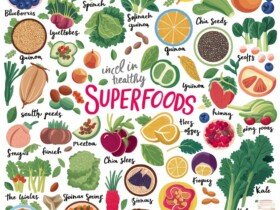Introduction for Healthy snacks for kids
Ensuring children have access to healthy snacks is crucial for their overall well-being and development. Balanced nutrition plays a pivotal role in supporting a child’s growth, enhancing their energy levels, and improving their ability to concentrate. Healthy snacking not only complements regular meals but also helps maintain steady glucose levels, preventing the spikes and crashes that can lead to mood swings and fatigue.
Parents often face the daunting task of finding nutritious snacks that appeal to their children’s tastes while meeting dietary needs. The market is flooded with products that claim to be healthy, but many of these options can be misleading due to high sugar content, unhealthy fats, or artificial additives. Thus, it becomes imperative for parents to sift through these choices carefully to find genuinely healthy snacks that their kids will enjoy.
This blog post aims to guide parents through the maze of available snack options, highlighting some of the best healthy snacks for kids. By providing a comprehensive overview, we hope to ease the decision-making process, ensuring that kids receive the nutrition they need without compromising on taste. Whether you are looking for quick bites for lunch boxes or after-school treats, our guide will offer a variety of options tailored to meet various dietary preferences and nutritional requirements.
Criteria for Choosing Healthy Snacks
When selecting healthy snacks for children, parents must consider several critical factors to ensure that their choices support their child’s overall well-being. One of the foremost criteria is the nutritional value of the snack. A healthy snack should provide essential nutrients such as vitamins, minerals, fiber, and protein. Snacks high in refined sugars and unhealthy fats should be avoided, as they contribute little to a child’s nutritional needs and can lead to long-term health issues.
Ingredient quality is another vital aspect. Parents should look for snacks made from whole, natural ingredients without unnecessary additives. This includes avoiding artificial colors, flavors, and preservatives, which can have adverse effects on children’s health. Reading labels carefully is essential to identify these unwanted ingredients. For example, snacks that contain high-fructose corn syrup or hydrogenated oils should be avoided.
Portion size is also important when choosing healthy snacks. Snacks should be appropriately portioned to prevent overeating and to help maintain a balanced diet. Many pre-packaged snacks come in single-serving sizes, which can help manage portion control. However, parents should still be vigilant, as some single-serving packages can contain more than the recommended amount for children.
An often overlooked but crucial factor is the absence of harmful additives. Parents need to be aware of the potential negative impacts of certain additives on their children’s health. This includes monitoring sugar content, as excessive sugar can lead to issues such as obesity and dental problems. The American Heart Association recommends that children aged 2 to 18 consume less than 25 grams of added sugars per day.
In summary, choosing healthy snacks for kids involves a careful assessment of nutritional value, ingredient quality, portion size, and the absence of harmful additives. By reading labels and being mindful of these factors, parents can make informed decisions that contribute to the health and well-being of their children.
Fruits and Vegetables: Nature’s Perfect Snacks
Incorporating fresh fruits and vegetables into children’s snack routines offers numerous benefits that extend beyond mere satiation. These natural snacks are rich in essential vitamins, minerals, and dietary fiber, contributing to overall health and well-being. For instance, apples are a source of vitamin C and fiber, while carrots are packed with beta-carotene, a precursor to vitamin A, which is crucial for healthy vision and immune function. Additionally, cucumbers provide hydration and a dose of vitamin K, important for bone health.
Kid-friendly fruits and vegetables, such as apple slices, baby carrots, and cucumber sticks, are particularly advantageous due to their portability and ease of consumption. Apple slices can be effortlessly packed into lunchboxes and are less likely to cause a mess, making them a practical choice for both parents and children. Similarly, baby carrots are a convenient, no-prep option that can be enjoyed on the go. Cucumber sticks, with their refreshing crunch, are another excellent snack that requires minimal preparation and is highly enjoyable for kids.
For added convenience, many pre-packaged, ready-to-eat options are available on the market. These products often come in single-serving sizes, making portion control straightforward and reducing the time needed for preparation. Pre-sliced apple packs, individual servings of baby carrots, and snack-sized cucumber portions are readily available in most grocery stores, providing a quick and healthy alternative to processed snacks. These pre-packaged options ensure that children have access to nutritious snacks even when time is limited.
By integrating fruits and vegetables into daily snack routines, parents can ensure their children receive the nutrients necessary for growth and development. These natural snacks not only support physical health but also help instill healthy eating habits that can last a lifetime. With the variety of fresh and pre-packaged options available, making nutritious choices for kids has never been more convenient.
When it comes to providing healthy snacks for kids, whole grain options are an excellent choice. Whole grains are rich in essential nutrients and fiber, which not only help maintain digestive health but also keep kids feeling full for longer periods. This can be particularly beneficial in curbing hunger between meals and promoting sustained energy levels throughout the day.
One popular whole grain snack is whole grain crackers. These crackers are made from whole grain flour, which retains all parts of the grain, ensuring a higher nutrient content compared to refined grain products. Brands like Annie’s and Triscuit offer a variety of whole grain crackers that are both delicious and kid-friendly. Pairing these crackers with cheese or hummus can create a balanced and satisfying snack.
Another great whole grain option is popcorn. Air-popped popcorn is a whole grain snack that is low in calories and high in fiber. It’s also a versatile snack that can be seasoned with a variety of flavors to keep things interesting for kids. Brands like SkinnyPop and Boom Chicka Pop provide pre-packaged popcorn options that are free from artificial additives and preservatives, making them a healthy choice for your child’s snack time.
Granola bars are also a convenient whole grain snack that kids love. They are easy to pack for school lunches or grab on the go. Look for granola bars made with whole grain oats and minimal added sugars. Brands such as Nature Valley and KIND offer a range of granola bars that combine whole grains with nuts, seeds, and dried fruits, providing a nutritious and tasty snack option.
Incorporating whole grain snacks into your child’s diet can significantly contribute to their overall health and well-being. By choosing snacks that are high in fiber and nutrients, you can help ensure that your kids stay satisfied and energized throughout their busy days.
Protein-Packed Snacks for Growing Kids
Protein plays a crucial role in the growth and development of children. This essential macronutrient is vital for building and repairing tissues, producing enzymes and hormones, and supporting overall immune function. Including protein-rich snacks in a child’s diet can help maintain their energy levels and enhance their cognitive abilities.
One popular protein-packed snack is cheese sticks. Cheese is not only a rich source of protein but also provides calcium, which is important for bone health. Brands like Sargento and Horizon Organic offer convenient, pre-packaged cheese sticks that are perfect for lunchboxes or after-school snacks.
Yogurt is another excellent protein option. Greek yogurt, in particular, is known for its high protein content. It can be enjoyed on its own or mixed with fruits and granola for added flavor and nutrients. Stonyfield Organic and Chobani are well-regarded brands that offer a variety of kid-friendly yogurt options.
Hummus paired with whole wheat pita is a tasty and nutritious snack that provides a good balance of protein and fiber. Hummus is made from chickpeas, which are a great plant-based protein source. Sabra and Hope Foods are popular brands that offer a range of hummus flavors, making it easy to find one that appeals to your child’s taste buds.
Incorporating these protein-rich snacks into your child’s diet can help ensure they receive the necessary nutrients for optimal growth and development. By choosing high-quality products from reputable brands, you can feel confident that your child is getting the best nutrition possible.
Dairy Alternatives: Healthy Choices for Lactose-Intolerant Kids
For children who are lactose intolerant or have dairy allergies, finding nutritious and delicious snacks can be a challenge. Fortunately, there are a variety of dairy alternatives available that cater to these dietary needs while ensuring kids still enjoy their treats. One popular option is almond milk yogurt. This creamy and flavorful snack offers a similar taste and texture to traditional yogurt but without the lactose. Brands such as Kite Hill and Silk provide high-quality almond milk yogurts, rich in probiotics and essential nutrients, making them an excellent choice for a healthy snack.
Another delightful option for dairy-free snacks is coconut milk ice cream. This offers a smooth and satisfying alternative to traditional ice cream, ideal for kids who love frozen treats. Companies like So Delicious and Coconut Bliss specialize in creating coconut milk-based ice creams that come in a variety of flavors, from classic chocolate and vanilla to more adventurous options like salted caramel and mango. These products are often fortified with vitamins and minerals to ensure they are nutritionally balanced for children.
Soy cheese is another viable alternative for kids who miss the taste of traditional cheese. Brands such as Daiya and Follow Your Heart produce soy-based cheeses that melt and stretch just like regular cheese, making them perfect for snacks like grilled cheese sandwiches or cheese sticks. These products are typically fortified with calcium and other essential nutrients, ensuring that children receive the dietary benefits they need.
When selecting dairy-free snacks, it’s important to choose brands that focus on high-quality ingredients and nutritional value. Always check the labels to ensure that the products are suitable for children and free from allergens. Incorporating these dairy alternatives into your child’s diet can help them enjoy a variety of tasty and healthy snacks without compromising their dietary restrictions.
Nut-Free Snacks for Allergy-Sensitive Kids
Providing safe and healthy snack options for children with nut allergies is paramount. With the rising prevalence of nut allergies, it is essential to choose snacks that are both nutritious and nut-free. Fortunately, there are a variety of snacks available that cater to the needs of allergy-sensitive kids while still being delicious and wholesome.
One excellent alternative to nut-based products is sunflower seed butter. Sunflower seed butter is not only safe for children with nut allergies but also packed with essential nutrients such as vitamin E, magnesium, and protein. It can be easily spread on whole-grain crackers or used as a dip for apple slices, making it a versatile snack option.
Roasted chickpeas are another fantastic nut-free snack. They are crunchy, flavorful, and rich in protein and fiber, helping to keep kids full and satisfied between meals. Roasted chickpeas come in various flavors, from simple sea salt to more adventurous options like barbecue or ranch, making them an appealing choice for children.
Fruit leathers are a popular and convenient nut-free snack. Made from pureed fruit that has been dried, fruit leathers offer a chewy texture and natural sweetness that kids love. They are an excellent source of vitamins and can be found in nearly every grocery store. Opt for brands that use minimal added sugars and no artificial ingredients to ensure a healthier choice.
When selecting nut-free snacks, it is crucial to consider brands that produce their products in dedicated facilities to avoid cross-contamination. Brands such as Enjoy Life Foods, MadeGood, and Free2b manufacture their snacks in nut-free environments, providing peace of mind for parents and caregivers.
By choosing these healthy, nut-free snacks, you can ensure that children with nut allergies have safe and enjoyable options to fuel their day. With a variety of tasty alternatives available, finding nut-free snacks that kids will love has never been easier.
In conclusion, selecting the right snacks for your children is a crucial step in promoting their overall health and well-being. Throughout this comprehensive guide, we have highlighted a variety of healthy snacks that are readily available in the market. These snacks not only provide essential nutrients but also appeal to children’s taste preferences, making it easier for parents to encourage healthier eating habits.
One of the primary takeaways from this discussion is the importance of reading labels carefully. By understanding the nutritional content of the snacks you purchase, you can make better-informed decisions that align with your child’s dietary needs. Opting for snacks that are low in added sugars, sodium, and unhealthy fats while being high in vitamins, minerals, and fiber can make a significant difference in your child’s health.
Furthermore, prioritizing natural and minimally processed snacks is another key aspect of making healthier choices. Foods that are closer to their natural state generally retain more of their nutritional value and contain fewer artificial additives. This not only supports physical health but also helps in developing a preference for wholesome foods over time.
With the wide variety of healthy snacks available today, parents have ample choices to ensure their children receive the nutrition they need without compromising on taste or convenience. From fruit and vegetable-based snacks to whole grain options and protein-rich selections, there is something to suit every child’s palate and dietary requirement.
Ultimately, by making informed and mindful choices, parents can positively impact their children’s long-term health and instill habits that will benefit them well into adulthood. The journey towards healthier eating may require some effort, but the rewards are undoubtedly worth it. Here’s to happy, healthy snacking for your little ones!























